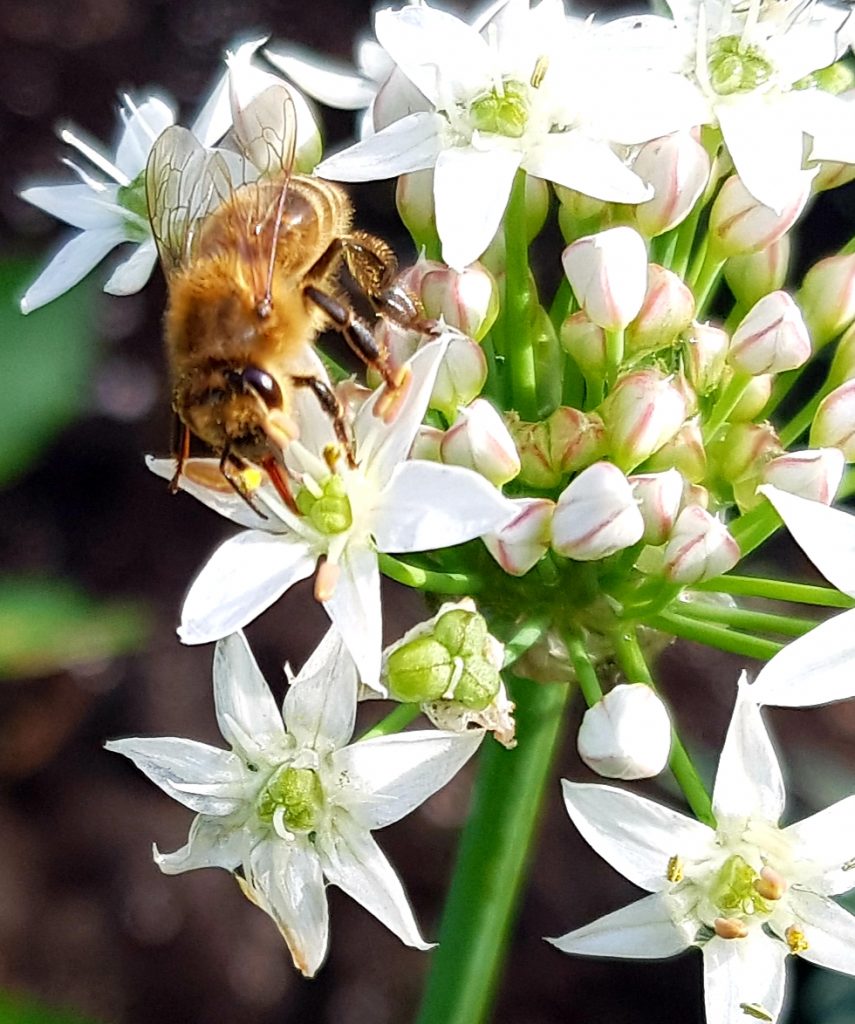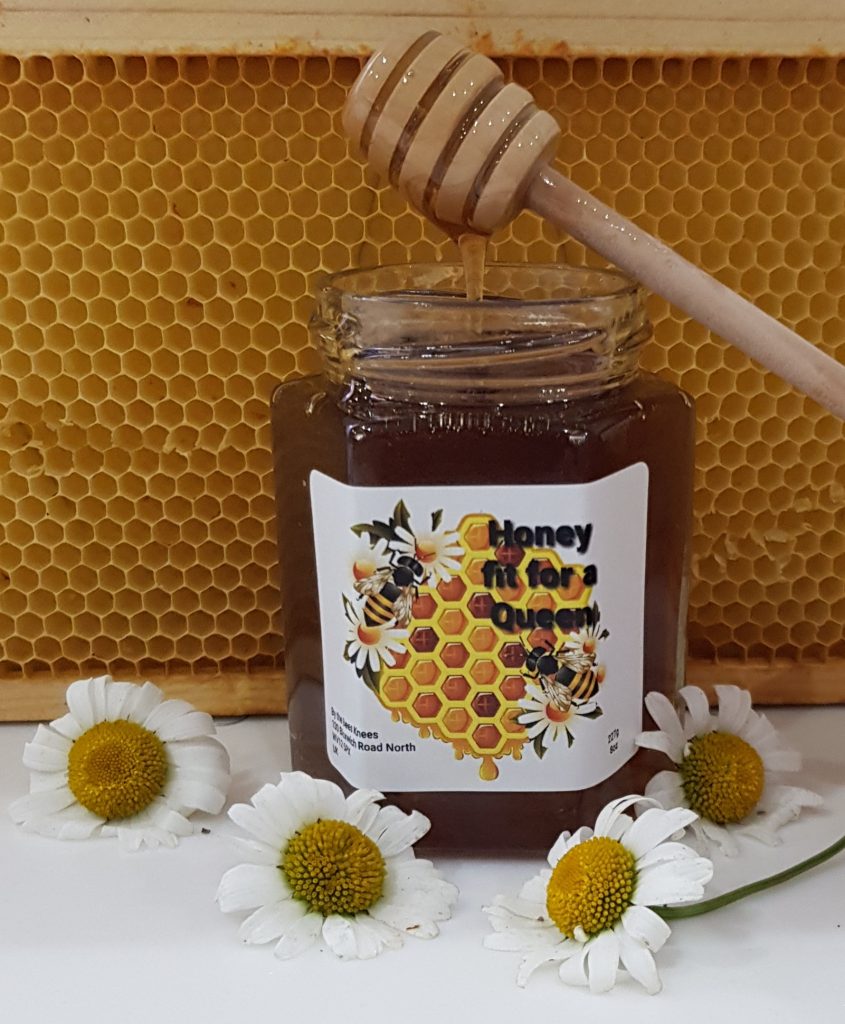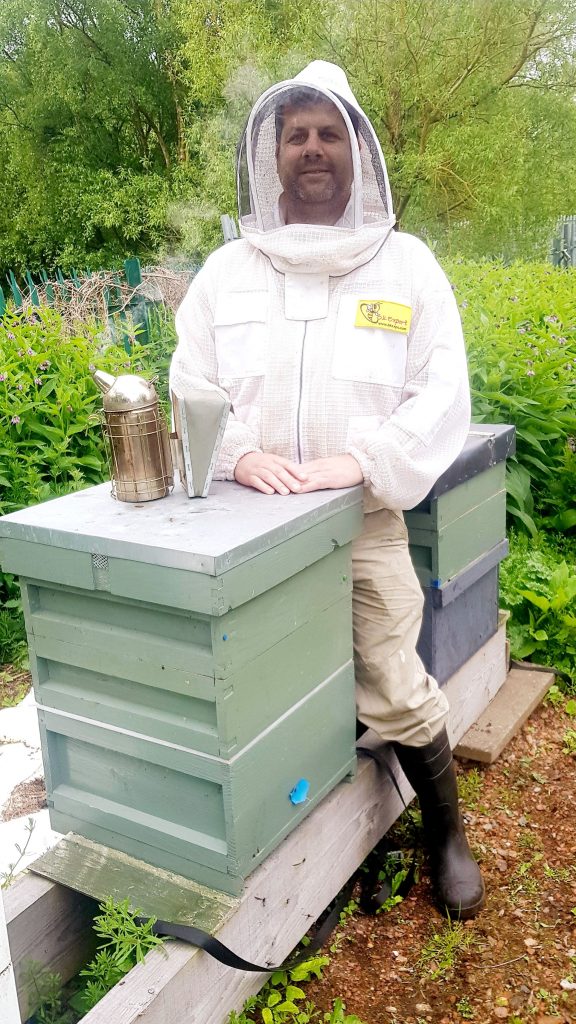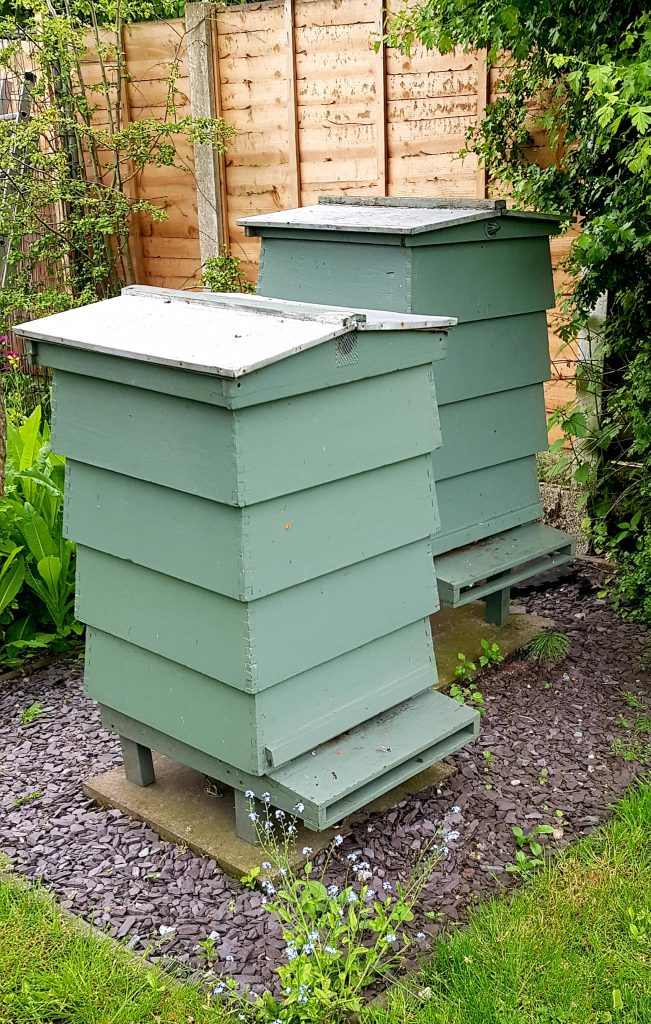With the number of bees declining, it’s never been more important to attract pollinators into our gardens and open spaces. It’s why a Walsall beekeeping hobbyist is looking for new sites to house hives. He tells Jayne Howarth about his hopes.
Richard Collins is a man on a mission: a hobby beekeeper for the past six years, he is doing what he can to help increase the number of bees across Walsall.

He started off with just one hive in his Short Heath garden after his wife, Lisa, bought him a course on beekeeping for his birthday, and the number has gradually increased over the years. Now, he looks after 10 hives across Walsall – including in other people’s allotments and gardens – and he is now on the lookout for more gardens, roof spaces of factories, or on farmland to house hives.
“A lot of people connected with us through word of mouth,” said Richard, who runs The Bees Knees Honey Bees with his wife. “I got my second when someone down my road said they had a swarm of bees in their garden and asked if I could do something.
“I want to expand, not just for the honey but because bees are in decline everywhere and it’s important we get them in as many places as we can, so I’m looking for new places for new hives.”

Richard, aged 43, buys Buckfast queens when he is trying to establish new hives because Buckfast is a docile species and is extremely productive for pollinating plants and collecting nectar.
Developed by Brother Adam, a monk who lived at Buckfast Abbey in Devon, in the early 1900s, the Buckfast bee is now one of the most popular bees in the country for keepers.
Not only are they good foragers, they tend not to swarm and do not have a tendency to sting. They are also hardy and overwinter well.
However, if they naturally requeen – breed a new queen – the second generation can be aggressive, which is why Richard buys queens because they do not have aggressive tendencies.
He stresses that anyone interested in siting a hive on their property does not have to be involved with looking after the bees, although he has spare bee suits if anyone is interested in learning more about how to look after them.

He also said a huge garden is not necessary, but he stressed he needs to access the hive at least once a week so that he can check on the insects’ health and to see how they are breeding.
“Hives don’t tend to cause problems in gardens or for neighbours because the Buckfast breed, if managed correctly, is less likely swarm, so it’s a good one to have,” said Richard, who is a member of the British Beekeepers Association. “A good-sized garden works well, as does roofs on factories or empty land, but as long as the site is secure and I can get to it easily, I’ll be happy to look at placing one there.”
Hives can house anything up to 60,000 bees at peak summer season, although not all leave the confines of their home because some are worker bees, while others are guard bees and nurses. Only the foragers leave to collect nectar and pollen. In the winter, their number can reduce to as few as 10,000.
While Richard does sell jars of honey – a hive can produce between 50lbs and 60lbs in a good year, although not all is taken as the bees need it to maintain their health – he says this is secondary to ensuring the bee population can thrive.

“I tend to sell to people locally but it’s not my main reason for keeping bees,” he said. “In fact, I can be out of pocket after buying new jars and labels because you’re not allowed to reuse jars for health and hygiene reasons. The hives themselves are also expensive to set up and maintain.
“For me, it’s more important to get the bees out there and pollinating the plants – they are essential for us to produce our food – the honey is just a bonus.”
If anyone has a piece of land, garden or allotment that Richard could site at least one hive, contact him at: bythebeesknees@gmail.com
How can you attract more pollinators into your garden?
Here are five simple things you can do help attract pollinators, including bees, into your garden:
- Have a wild area – even a small area is valuable
- Grow more flowers, shrubs and trees
- Don’t cut your grass so often
- Try not to use pesticides
- Do not disturb insect nest and hibernation areas
Written by Jayne Howarth




